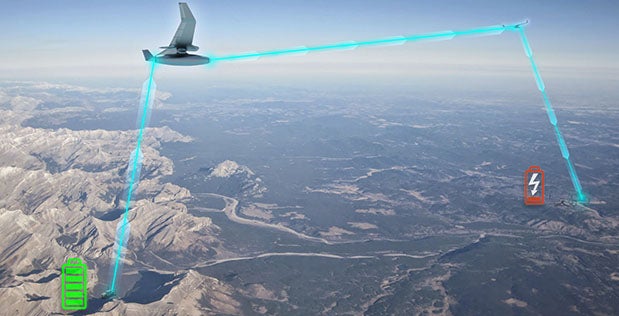- Brave New Digital World
- Posts
- Brave New Digital World E02
Brave New Digital World E02
Chronicling Technologically-Turbulent Times: we just lost cabin pressure.
S01E02: Oligarchic Warfare, Space Mining, and more…
“We were the people who were not in the papers. We lived in the blank white spaces at the edges of print. It gave us more freedom. We lived in the gaps between the stories.”
So here we are… the difficult second episode…
This month, the media has been peppered by excerpts from the biography of Elon Musk, Technoligarch* and CEO of several high-profile companies including Tesla, X (formerly Twitter) and SpaceX. One story in particular garnered a significant amount of attention (including congressional scrutiny) and it seems worth unpacking…
Promoting his upcoming biography of Musk, Walter Isaacson made a startling claim. He stated that Musk had disabled Starlink satellite internet access as the Ukrainians were attempting a drone strike on the Russian Black Sea Fleet situated at Sevastopol in Russian-occupied Crimea. According to Isaacson, Musk's intervention prevented the destruction of the invading fleet. Musk justified his decision by saying that allowing the strike to proceed would have escalated the conflict further.
“He wears a mask, and his face grows to fit it.”
In the subsequent hoo-ha, Musk remarked that Starlink was never enabled for the occupied Crimea region and he had declined to temporarily enable it for the mission to “avoid complicity in a major act of war”, invoking widespread condemnation (and even calls for a US Senate investigation), except, of course, from the Kremlin.
All this is a far cry from the early days of the conflict, when Musk’s decision to provide the Ukrainian military with Starlink was hailed by the Ukrainian forces as a game-changer. Moscow’s forces clearly concur, since they’re actively seeking to disrupt the Starlink network. Musk's interventions in the conflict at various junctures have clearly served different parties' interests.
This story is fascinating from many angles, but it’s worth taking a step back to appreciate how very Sci-Fi it is that the richest guy on the planet wields a highly-resilient network of satellites in low-earth orbit, that provides such effective communications capabilities that it can swing the odds in conflict zones where high-tech drone warfare is taking place.
While oligarchs influencing or financing conflicts isn't a novel concept, the narrative hints at a burgeoning concern. In this case, technology from the private sector, manipulated at the whim of a single individual, holds the formidable power to reshape the dynamics of a global conflict, dictating the fate of innocent civilians and soldiers alike.
Some voices are now demanding that SpaceX, which owns Starlink, should be nationalized on national security grounds and that decisions around strategic military support of an ally in wartime should perhaps not hinge on the caprices of a billionaire.
As a footnote to this tale of oligarchical whimsy, it seems that the Ukrainians figured out new ways to target the Black Sea Fleet: at the time of writing, Ukrainian forces successfully took out hundreds of millions of dollars worth of Russian navy assets in Sevastopol, notwithstanding the unreliable internet situation in Crimea.
“The only thing that makes life possible is permanent, intolerable uncertainty; not knowing what comes next.”
S01E02 Reading List:
“Big Brother is watching you.”
To kick off this month’s selection, here’s a deep, dark essay that makes a compelling case for AI ushering in and enabling totalitarianism.
Elsewhere, the folks that brought us the Internet and GPS technology are working on beaming power through the air! Screw power cables; they’re going to seem so hopelessly quaint if the invisible electricity rays don’t evaporate us first.
In other news that will surprise nobody, AI startups continue to attract Venture Capital in an otherwise-bleak fundraising environment. No surprise, then, that every startup with a digital product is shoehorning in spurious AI features in an effort to ride the hype cycle all the way to the bank.
It’s not all roses though: some seasoned AI ‘unicorns’ are falling on tough times…
“All gods are homemade, and it is we who pull their strings, and so, give them the power to pull ours.”
Quantum computers need to be chilled to near absolute zero to work properly. UTEP physicists have developed a new material with which to create powerful magnets that keep quantum bits working their dark magic.
In a dual win for materials science and quantum computing, Q-boffins create a new ultra-magnetic material that works at room temperature and doesn’t exhaust valuable rare-earth elements.
Space is the final frontier, but also a potential gold mine. Asteroids and other celestial bodies are rich in valuable resources, such as water, metals, and minerals. But who has the right to claim them? And how can we ensure that space mining is fair and sustainable? (Side Note: A certain Technoligarch, who inherited wealth from relatives exploiting Earth-based resources, also harbors hopes of hitting the Asteroid Jackpot).
“The original is unfaithful to the translation.”
*Fictional Terminology Guide: Technoligarch
"Technoligarch" - A neologism that blends "technology" with "oligarch," referring to a new breed of ultra-wealthy individuals who have accrued significant power and influence through their leadership in the technology industry. These individuals, often founding or leading mammoth tech corporations, possess the ability to shape societal narratives, influence political landscapes, and direct significant developments in various global sectors including space exploration, artificial intelligence, social media, armed conflicts, legislation and more.
Their wealth, often measured in tens or hundreds of billions, grants them an outsized role in shaping the world, frequently pushing the boundaries of innovation and steering global conversations. They not only influence economic trends but also impact the daily lives of billions of individuals through their technology platforms and innovations.
Notable examples include Elon Musk, Yuri Milner, Mark Zuckerberg, Bill Gates and Jack Ma, the latter of which is currently topping the leaderboard for "Elite Hide & Seek".“Technology advances with great rapidity and threatens freedom at many different points at the same time (crowding, rules and regulations, increasing dependence of individuals on large organizations, propaganda and other psychological techniques, genetic engineering, invasion of privacy through surveillance devices and computers, etc.)”





